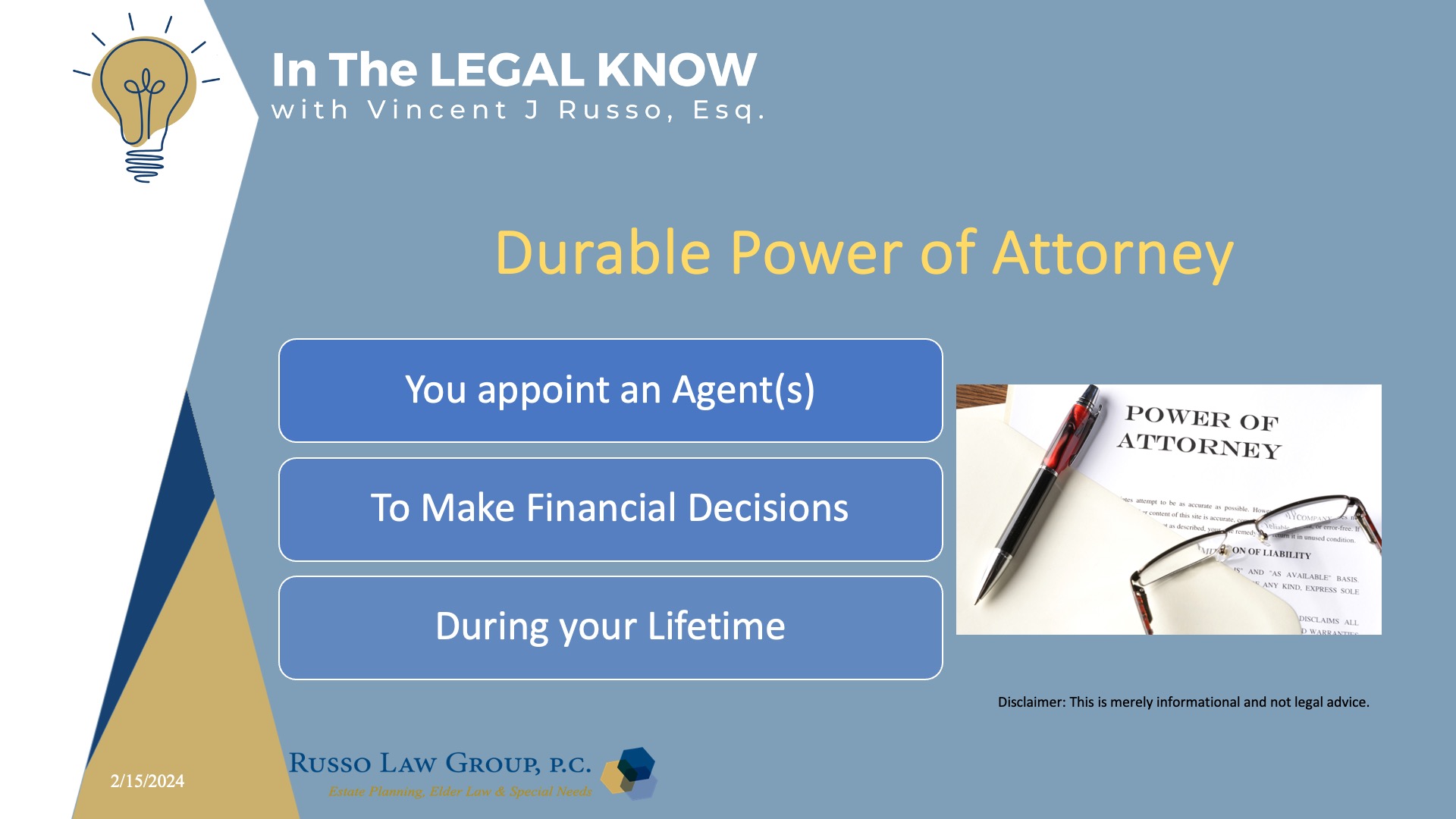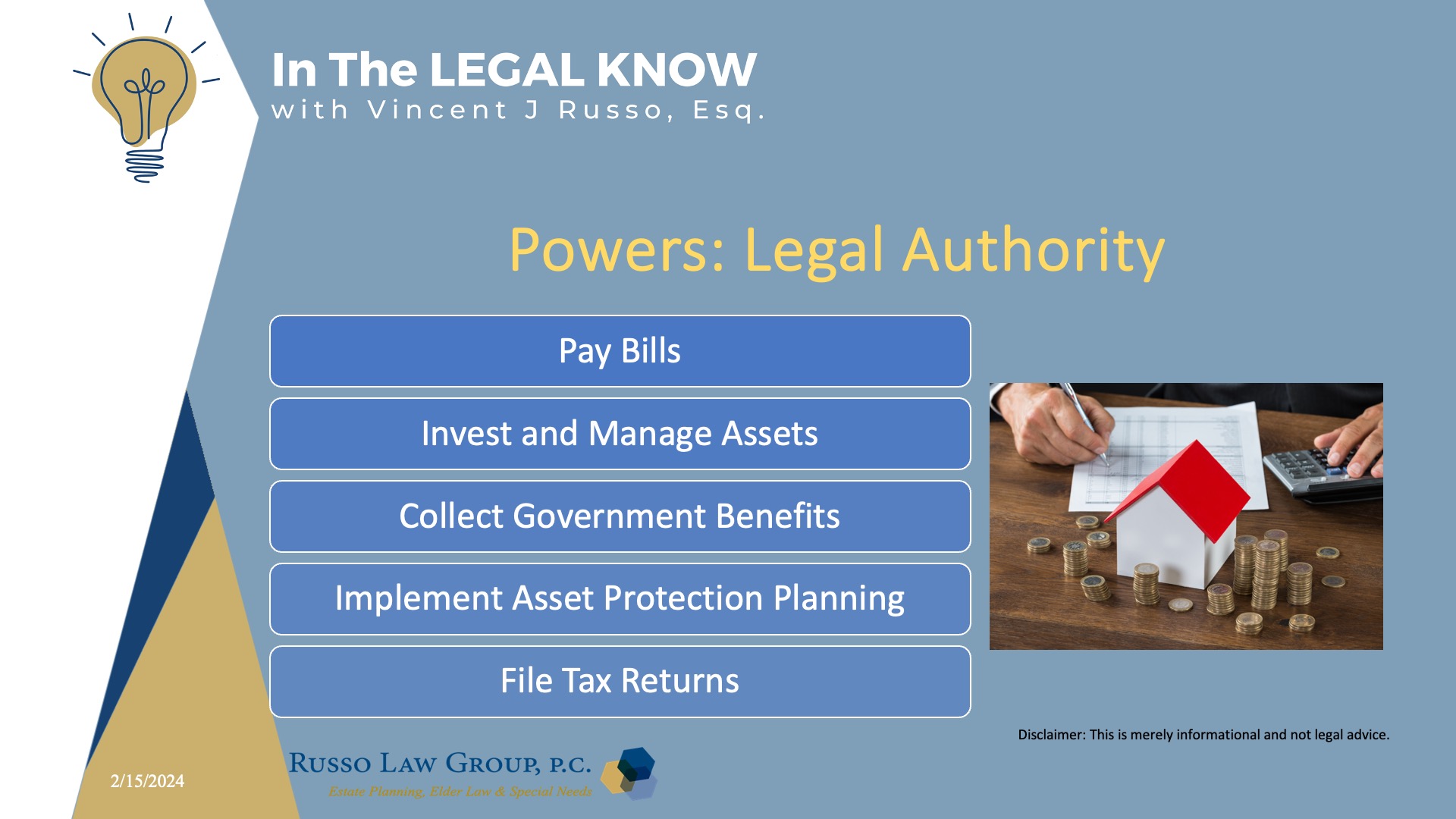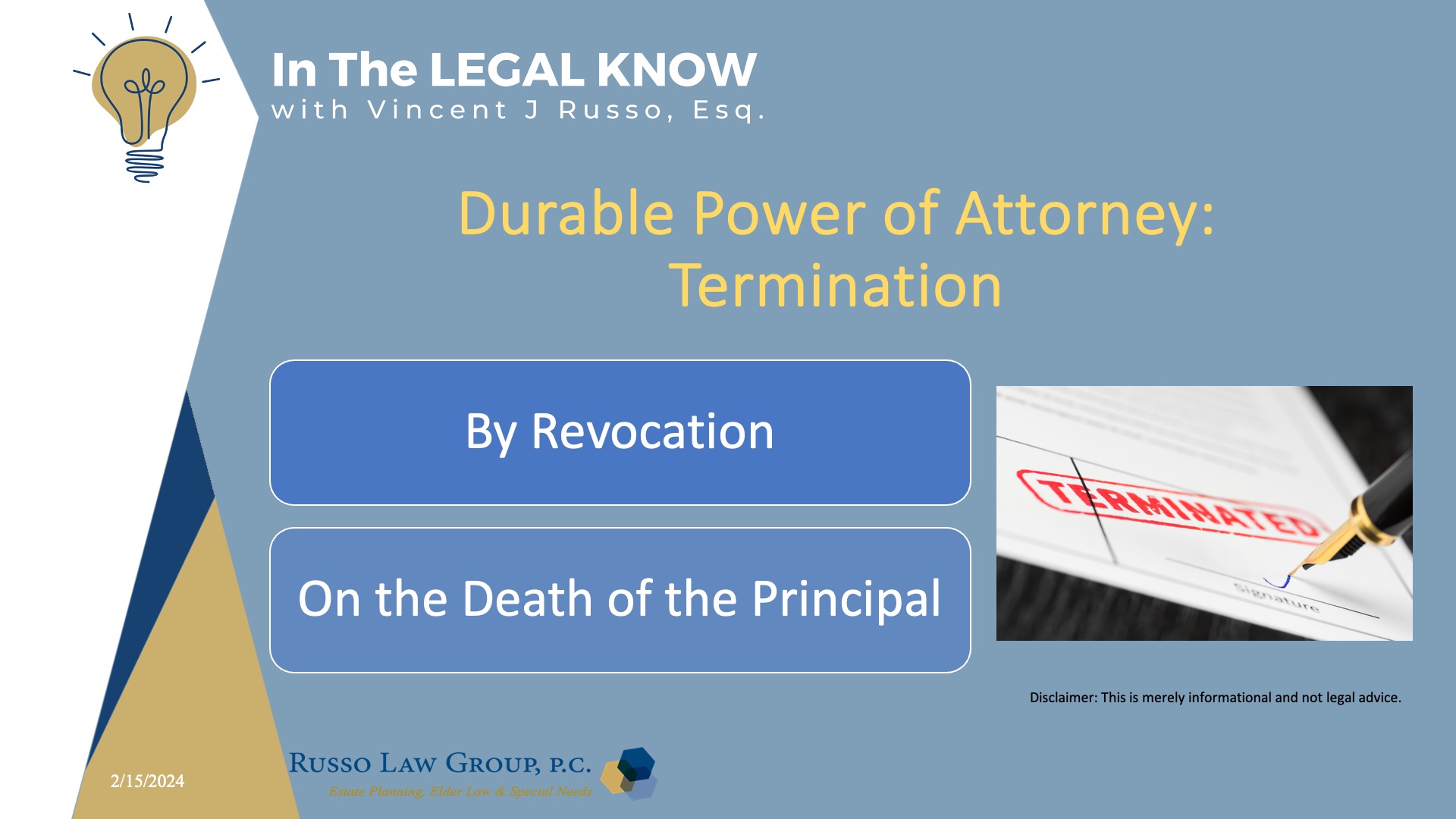This originally aired on the Catholic Faith Network’s show CFN Live: https://youtu.be/aQgwbQkJtC0 How can SSI…

Empowering Yourself with the Power of Attorney
This originally aired on the Catholic Faith Network’s show CFN Live: https://youtu.be/Uy9_EvlFiFo
While most people prefer to be independent and self-sufficient, it is important to keep in mind that it is impossible to know how long someone will be able to remain independent or self-sufficient.
So, what happens to your financial affairs if you become incapacitated? Who has the right to step in and pay your bills?
What does “empowering yourself” mean?
Empowering yourself means that every person has the power to take control over their own life by making positive decisions based on what they want.
So, we may be faced one day with circumstances that are beyond our control such as accidents or medical issues which could render you unable to make decisions or be self-sufficient. However, choosing who you would want to make decisions on your behalf in such circumstances is in your control.

This is when the power of attorney comes in. A durable power of attorney allows you to appoint an agent to manage your financial affairs (pay your bills and manage your bank account and other assets)
There are several different types of Powers of Attorney. The one that I recommend everyone should have: is the “durable” power of attorney. One that remains in effect for your lifetime.
What does one need to know about appointing an agent?
An agent is the one stepping in to take care of your financial affairs. When appointing a power of attorney, the agent you select is a personal decision. You should select someone you trust.
Seniors often select one or more of their children. Consider whether your adult children are trustworthy and mature in handling finances on your behalf. Some adult children move away or lose touch and are not necessarily suitable candidates simply because they are your children. You may want to consider selecting a close friend or professional instead.
You should provide for a successor agent just in case your agent becomes disabled themselves or pre-deceases you.
What can my agent in a power of attorney do?
The agent has the authority to perform some, or all the financial tasks as provided for in your document. Typically, broad powers are given in a Durable Power of Attorney:

The agent may:
- Pay everyday expenses for you and your family with your assets
- Maintain, pay taxes on sell, buy, and mortgage real estate and other property
- Collect government benefits, including Medicare, Social Security, Disability, and more
- Invest your money in mutual funds, stocks, and bonds
- Conduct transactions with banks and other financial institutions
- Buy and sell annuities and insurance policies on your behalf
- File and pay your taxes
- Operate your small business
- Claim inheritance or other property to which you are entitled
- Transfer property to a trust you created
- Hire someone to represent you in court
- Manage your retirement accounts
- Make gifts as part of your estate tax plan or to access government benefits such as Medicaid
How many agents can you have on a Power of Attorney?
You can have one or more agents in your Power of Attorney. There is no limit on the number of agents you can appoint in this document.
The principal controls whether the agents have the authority to act separately or together. Unless you specifically designate otherwise, the agents must act collectively. An advantage to having your agents work together is a safeguard of checks and balances. However, it may also cause delays in decision-making based on an agent’s availability or disagreements between the parties.
A more practical approach is to allow the agents to act separately. Even when making individual decisions, the agents should still openly communicate with each other to avoid duplicating efforts, such as paying the same bill twice.
Can a Power of Attorney be terminated and what happens when I pass away?
A Power of Attorney can be revoked during lifetime, and it terminates when you pass away.

As the principal of the Power of Attorney, it’s critical to inform your agent that their authority can be terminated by you at any time during your lifetime and will terminate upon your death. This is important because you don’t want your agent to unknowingly attempt to act on your behalf after your death without proper authorization.
If you would like your agent to access your assets immediately upon your passing, you should take the proper steps to re-title your assets, ensuring they legally pass to that person. Often a better solution is to create a revocable trust and transfer ownership of your assets to the trust, which will help your family avoid the need to involve the Surrogate’s Court (probate) when settling your estate.
Otherwise, if you die with assets in your name, your loved ones may need to petition the court to name a fiduciary of your estate to access your assets, regardless of whether you had a Durable Power of Attorney during your lifetime.
What are some benefits of having a Durable Power of Attorney?
The major benefit is that it allows you to control who steps in if you need help and control what actions the agent can take. Bottom line, it allows you to protect your assets which impacts your well-being and those in your family.
Choosing your agent well, appointing backup agents, and tailoring your documents to your needs and specifications can remove a lot of worry about your future care and wellbeing. The Power of Attorney can give you peace of mind.
Having valid durable power of attorney documents avoids guardianship issues, which are time-consuming, expensive, and limit your freedoms.
Bottom line, it allows you to protect your assets which impacts your well-being and those in your family.
An elder law attorney can address any questions or concerns you may have about establishing power of attorney documents for your specific needs.
We hope you found this article helpful. Contact our office today at 1 (800) 680-1717 and schedule an appointment to discuss what makes sense for you and your loved ones.



This Post Has 0 Comments